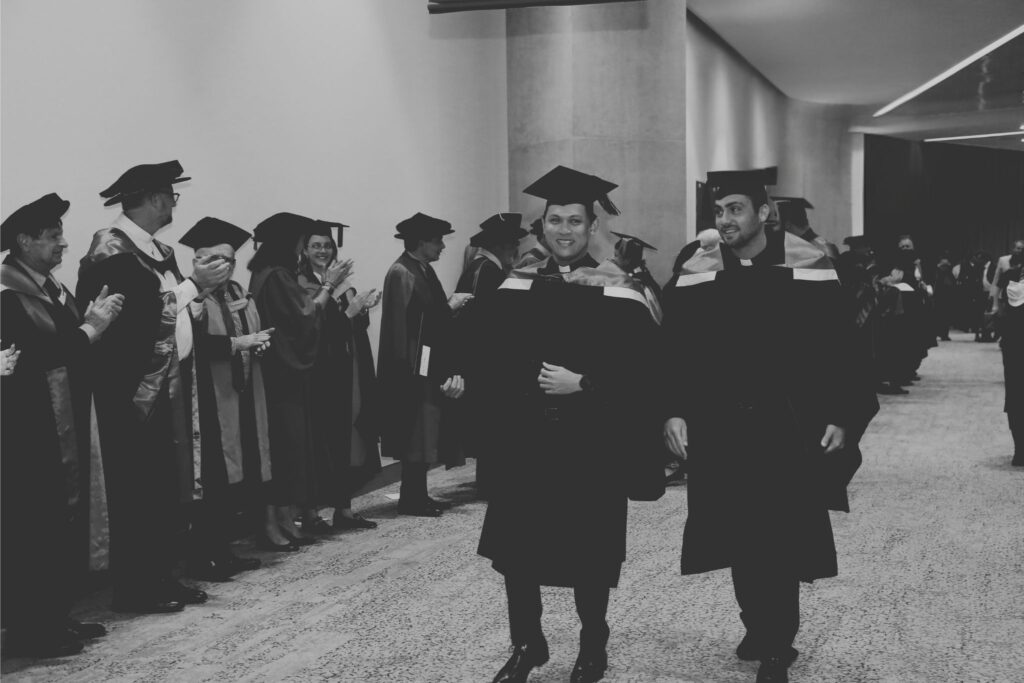Graduation photography has evolved alongside both education systems and camera technology. It began as a formal, ceremonial tradition and has now become an integral part of academic celebrations around the world.
Early 1900s: The Formal Studio Portrait
- In the early 20th century, graduation portraits were typically taken in professional studios.
- Graduates would wear academic dress and visit a photographer after the ceremony or even on a different day.
- Images were often black-and-white and highly posed, reflecting the formal tone of the era.
Mid-20th Century: On-Campus Sessions
- As portable equipment became more accessible, photographers started setting up temporary studios on university campuses.
- This allowed for same-day portraits and added convenience for graduates and families.
- Photos were still formal, but settings became more varied, including libraries, staircases, and iconic university landmarks.
1970s–1990s: Stage Photography Emerges
- Event photography became more common, with photographers capturing the moment students received their degrees on stage.
- This shift added a candid, action-based element to graduation memories.
- Companies began offering packages including both posed studio portraits and stage shots.
2000s: Digital Transition
- Film gave way to digital photography, allowing for faster processing and delivery.
- Online ordering platforms became standard, offering preview galleries, custom prints, and digital downloads.
- Graduation photo services expanded to include family portraits, video clips, and personalized keepsakes.
Today: Integrated Graduation Services
- Modern graduation photography often includes:
- Studio portraits (onsite with professional lighting and backdrops)
- Stage photos (crossing the stage moments)
- Candid/VIP shots (before and after the ceremony)
- Digital delivery platforms
- Photo booths, live streaming, and social media integration
- Services have expanded to include gown hire, guest ticketing, registration portals, and memorabilia (e.g., frames, teddy bears).





